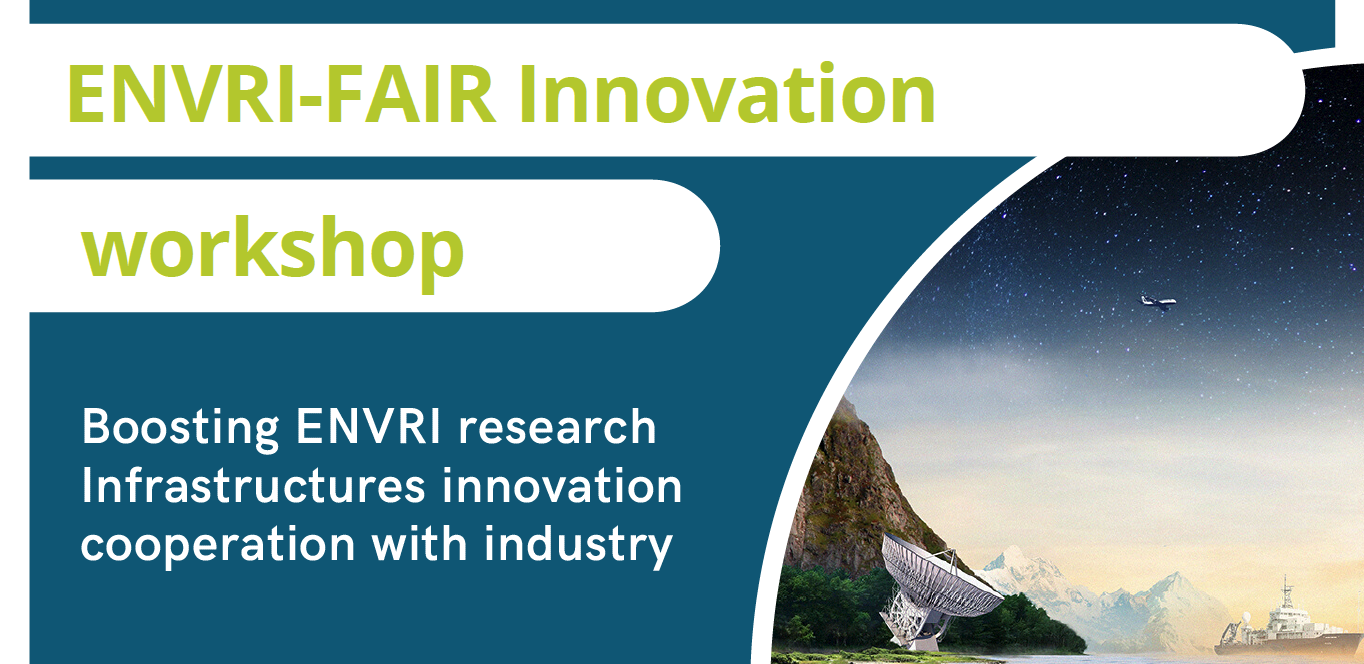On November 9th EMSO ERIC together with the ENVRI-FAIR WP3 organized the ENVRI-FAIR Innovation workshop on how to exploit the innovation potential of Environmental Research infrastructures (ENVRI).
EMSO ERIC, beneficiary of ENVRI-FAIR project and active member of ENVRI community, is engaged to promote innovation reinforcing the collaboration among ENVRI Research Infrastructures and Industry, in the development of key RI data services areas- products, technologies and training.
With an audience composed mainly by representatives of the Environmental Research Infrastructures (ENVRIs), the workshop intended to present some examples of innovation realized within the Environmental Research Infrastructures, to map the status of the current collaboration among Environmental Research Infrastructures and industry and finally, to present first industry needs related to Environmental Research Infrastructures.
Specifically, the focus of the workshop has been how to boost ENVRIs cooperation with industry as providers of advanced services, procurers of leading-edge technologies and partners in the development of new data driven products and applications.
To this aim, the event was conceived with three specific objectives:
- present some examples of possible innovations carried out within the ENVRI community,
- map the status of the collaboration between ENVRIs and industry,
- introduce industry needs and expectations towards ENVRIs.
Nine invited speakers, grouped in three main sessions organized according to the specific objectives above-mentioned, gave presentations and participated in the two main open discussions and in the final roundtable.
The first session was opened by ENVRI-FAIR project coordinator, Andreas Petzold, who provided an overview on the project purpose and activities with a focus on the potential of the RIs services which could be interesting for industry. Some services and innovation results were presented by representatives of LifeWatch ERIC and EMSO ERIC.
In the second session, representatives of EOSC Association, ENRIITC and CATRIS projects introduced the status of the collaboration among Research Infrastructures and Industry, bringing initiatives for promoting and strengthening the collaborations between them.
The third and last session was devoted to gathering perspectives and needs of the industry. Indeed, speakers in this session outlined the perspectives of EARSC (European Association of Remote Sensing Companies), SEABASED and OEE Ocean Energy Europe Association and results coming from the E-shape project.
Finally, the event has been attended by 43 registered participants that participated actively in the discussions.
The key outcomes and suggestions raised during the workshop will be the core of the ENVRI-FAIR milestone MS8 “Report on innovation workshop and training for RI industry liaison & communication officers organized”.
Specifically, the most relevant outcomes of the workshop are the following:
- There is a need for a better awareness of the other sector, from both sides: for the industry sector it would be valuable to better understand the Research Infrastructures context, while the Research Infrastructures could get advantage from knowing the industry segments and the way with which they proceed. For example, ENVRIs are distributed RIs and this landscape may be hard for industrial stakeholders to understand. On the other hand, ENVRIs should better distinguish the different sectors of the industry they want to target (manufacturers, downstream service industry…).
- Trying to find facilitators to bridge the gaps between the two worlds to enhance collaboration has also been stressed by the panellists. To this aim, the added value for the Research Infrastructure of having a figure such as “Industry Contact Officer”, who could play a key role in the ENVRI management has been recognized. Indeed, considering that the first mission of a European Research Infrastructure Consortium is not related to having direct commercial contracts with industry, often the need to engage with the private sector is put aside.
- It would be desirable to have dedicated funded projects, such as E-shape which enables co-designed pilots with industrial partners.
- It has been pointed out that there should also be trustworthiness between the ENVRIs and the industry sector. For example, private companies need to trust the quality and long-term sustainability of the RIs services before using them. Therefore, sustainability of RIs services is essential if the targeted users are in the private sector. Trust is essential also in terms of the data and the funding schemes. Trust could surely be improved with a better knowledge of the ENVRIs and their services.


